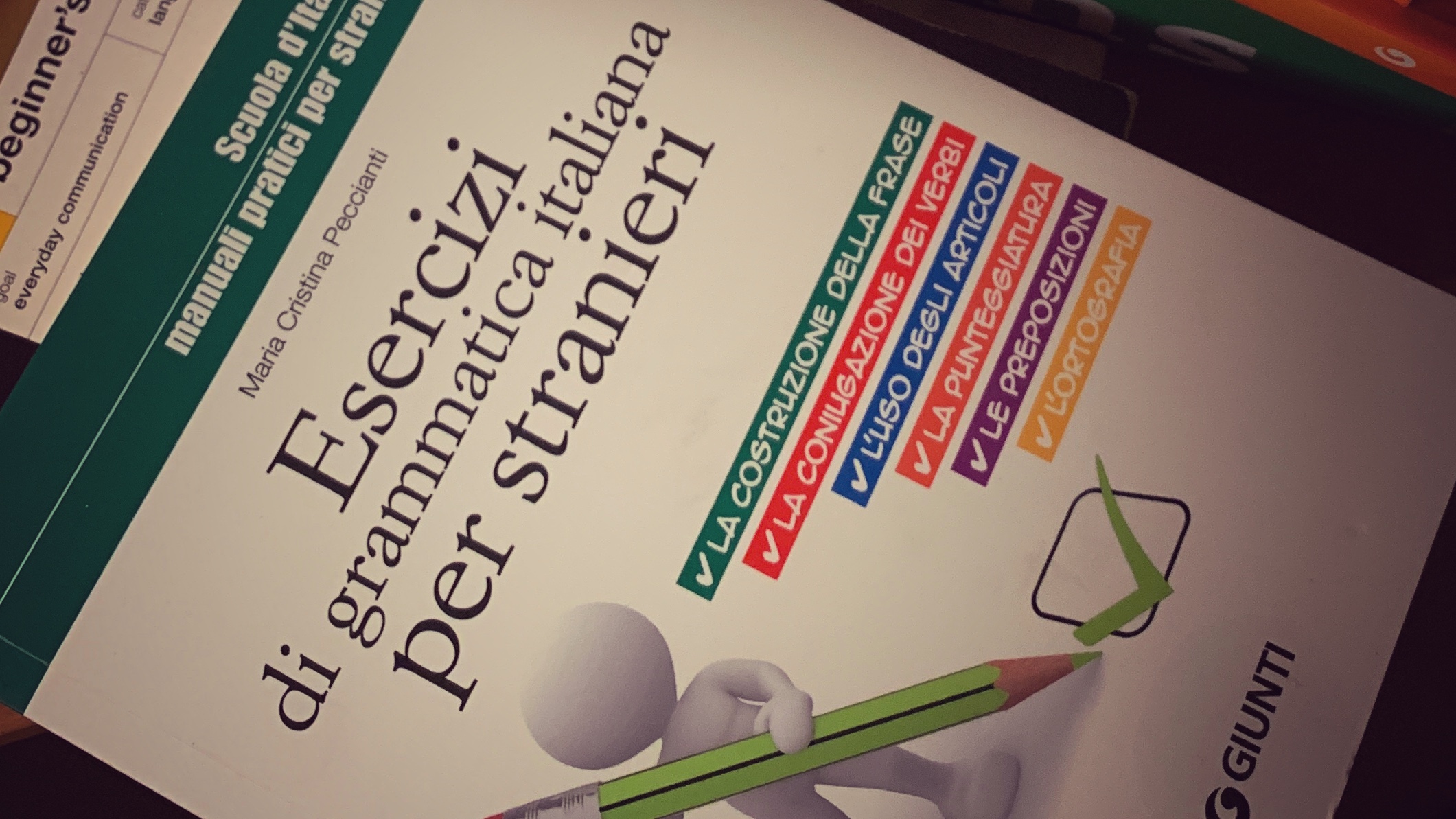Italian is a beautiful language. It sings to you, and it is fun to attempt speaking it back.
Trying a few words in Italian when visiting - ciao, buongiorno, grazie - gives a small sense of achievement. But more so we think that it is polite to make the effort when visiting any foreign country to be able to say at least hello, please and thank you in la madre lingua.
In Puglia, when visiting popular tourist destinations, bars and restaurants, staff will usually speak some English. But don’t take this for granted, especially when visiting smaller towns and destinations.
On public transport don’t expect the bus driver or the train station staff to understand English.
Some visitors come here to learn study a little Italian, finding that learning the language helps appreciate the culture more fully.
So, where to start?
Language, grammar and exercise books
I have a stack of these. When I moved to Puglia I didn’t speak any Italian. I had to start from scratch.
Three years later I still turn to the same books for reference.
The one that I use the most is from the “teach yourself” series - “teach yourself: quick fix italian grammar”. Its topics can be studied in sequence, at random or as a reference guide. I’m constantly having to refresh my memory when it comes to the imperfect, future and conditional tenses. (I give up when it comes to the subjunctive).
That book supplements their “teach yourself: beginner’s italian”. However I find “Easy Learning Italian Grammar” (Collins Easy Learning Italian) a more useful resource. I turn to their verb conjugation section regularly.
A dictionary is essential. Likewise I prefer the Collins version.
For grammar exercises I’m currently using “Esercizi di grammatica italiana per stranieri”, an Italian publication which is aimed for B1/B2 intermediate students.
Podcasts
I have tried a few of these. My absolute favourite, which is free, is Coffee Break Italian from Radio Lingua. I download their podcast from Spotify, but you can follow them on your usual podcast provider.
The Big Gay Podcast from Puglia has no relationship with them. We are not sponsored by them, nor do we receive any benefits from them (other than as a learner along with their other subscribers). But we LOVE their podcast.
 What’s more it works. It builds up, lesson after lesson. You don’t even need to listen in order. Dip in, catch-up, listen again. It just works for me.
What’s more it works. It builds up, lesson after lesson. You don’t even need to listen in order. Dip in, catch-up, listen again. It just works for me.
They supplement their podcast with a facebook presence and a free reading club
They do have additional materials that you can pay for, which allow you to access video materials, lesson notes and bonus audio content. I did try this, but I wasn’t dedicated enough to justify the subscription.
In the interest of full disclosure, I do have to acknowledge that I am Scottish and the podcast comes from Scotland (Coffee Break Italian are based in Glasgow) with two Scottish presenters (Mark and from s2, Isla) and Francesca their native Italian speaker.
Season 1 focuses on useful phrases for travellers to Italy. From season 2 you build on Italian grammar.
Apps
I have used these, and they are useful for learning vocabulary. A useful supplement, but they are no substitute for real learning.
Learning in Italy
It took me a while to find a language school in Puglia.
Eventually I found a school in Lecce. Mondo Italia & Homestay School.
The school is run by Maria. My teacher was Margherita, who was a pleasure to learn with.
I did a two-week intensive course there to get me started. My level was absolute beginner...
They organise social events and trips in and around Lecce. During my two weeks there were trips to local bars in Lecce to sample the typical dishes, a trip to a monastery and a social evening at the school in Lecce with students and alumni.
Alternatively Maria’s school offers a home stay in Villa Castelli as an alternative to studying at the school in Lecce (you could of course do both). You stay with Maria’s parents at their home, a fully immersive alternative.
Her students consist of expats now living here, and people who come on holiday. In fact, during my second week I studied with a wonderful Australian lady, Prue who has since become a very dear friend. She came to Lecce for 6 weeks, studying at Maria’s school for 4 or so weeks.
Both of us booked in advance. I popped in to check out the school the week before I booked. It helps with the school’s planning if you arrange in advance when you are visiting. That way they can place you in the group that best suits you (both weeks that I went there were 2 of us in class).
I did also find an alternative also in Lecce. It was called The Hub, Lecce. They primarily teach English to Italians, but at the time I was looking they did run courses in Italian for foreigners. I went to a free taster session. I didn’t actually take up the course only because I had already started at Maria’s school. However I recollect that the Hub’s offering was slightly different. While Maria’s school catered for people coming to visit on holiday, for 1 or 2 weeks or more, the Hub’s courses were designed for those living here - once a week for 10 weeks kind of thing.
So give learning some Italian a try.
Remember, the more you put in, the more you get out!
